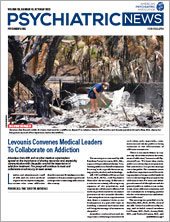In a summer marked by extreme weather, Hawaii is experiencing the deadliest wildfires recorded in the United States in over a century. Initially starting as scattered brush fires on the island of Maui, the flames quickly turned deadly, catching state officials and residents off guard. It will take an estimated $5.52 billion to rebuild Maui County, making it one of the worst natural disasters in Hawaii’s history and the deadliest U.S. wildfire since the 1918 blaze in northeast Minnesota. In addition, the mental health impact of this horrific disaster is and will continue to be significant.
Factors such as warmer temperatures, longer summers, and extreme heat waves are contributing to the rise in wildfires, which require heat, oxygen, and fuel to ignite. Changes in wind speed and rainfall patterns due to climate change further exacerbate these risks. Between 1998 and 2017, approximately 6.2 million people worldwide were affected by wildfires and volcanic activities, according to the World Health Organization. A 2022 report from the Congressional Budget Office estimated that, on average, wildfires burned 8 million acres of land in the United States annually between 2017 and 2021.
Globally, the impact is clear. Annual wildfire-related costs exceeded $800 million annually in Canada over the last 10 years, according to the Canadian government. Further, the
Medical Journal of Australia and
The Lancet reported that Australia has seen an increase of 30.6 days in high to
extreme fire danger days from 2016 to 2019. According to a
report in
Behavioral Sciences, wildfires produce between 1.75 and 13.5 billion metric tons of carbon annually, which circulate in the atmosphere for months, contributing to the greenhouse effect and furthering the development of wildfires.
The public health risks of wildfires are immense, including acute risks of mortality and injury, destruction of homes and workplaces, and displacement. They also have significant impacts on medical conditions such as COPD, asthma, and various mental illnesses. Studies have shown higher rates of mood and anxiety disorders among those who have been exposed to wildfires. Both adults and children feel these effects, with children exhibiting increased irritability and changes in concentration, sleep, and academic performance. Longitudinal studies have shown that wildfire-related mental health effects can persist for 10 to 20 years.
Displaced residents in Maui are grappling with feelings of loss and grief as they mourn their loved ones, homes, and possessions. The uncertainty and stress surrounding the fires and the displacement they cause can increase anxiety, leading to physical symptoms such as headaches and sleep disturbances. The traumatic experiences of fleeing the fires and witnessing their devastation may also lead to psychological trauma and, potentially, posttraumatic stress disorder (PTSD).
The prevalence of PTSD following wildfires varies significantly, ranging from 0% to 60%, and is influenced by factors such as age, gender, trauma history, and level of exposure to the fire. The prevalence of major depressive disorder is around 20% to 37% following wildfires, with similar factors affecting residents’ vulnerability. Children and adolescents may be particularly at risk for mental health issues, with the younger group more prone to PTSD symptoms and the older group more likely to exhibit internalizing symptoms. These symptoms can persist for years.
Additionally, wildfire exposure may be associated with increased substance use. Limited evidence is available, but studies indicate an association between increased alcohol or drug use after wildfires and psychiatric disorders. Substance use and mental illness are likely reciprocally related, each potentially contributing to the development and persistence of the other.
APA has addressed the disproportionate impact of climate change on people with mental illness. In March, the Board of Trustees approved a
position statement on mental health and climate change. In the statement, APA calls for greater funding for research investigating the impacts of climate change on mental health, utilization of mental health services, and the development of cost-effective supportive interventions. “Efforts should be aimed at reducing the progression of climate change, enhancing infrastructure, and developing a response plan to address the mental health effects of climate-related weather events,” the statement reads.
Psychiatrists should ready themselves to respond to climate-related disasters. They can pursue trauma-informed training, understand how to implement active screening for trauma-related physical and mental health consequences, prepare to collaborate with community entities that work with victims, and prepare themselves to work in high-stress environments while providing resources to health professionals facing secondary traumatic stress.
We have written extensively on the challenges that face
refugees and migrants. Just as these individuals face mental health challenges due to trauma exposure, postdisplacement difficulties, legal barriers, and acculturative stress, displaced individuals in Maui are facing similar challenges. Addressing the mental health of displaced individuals requires a multifaceted approach, involving not only mental health professionals but also the broader community, including researchers, advocates, legislators, and funders. ■

